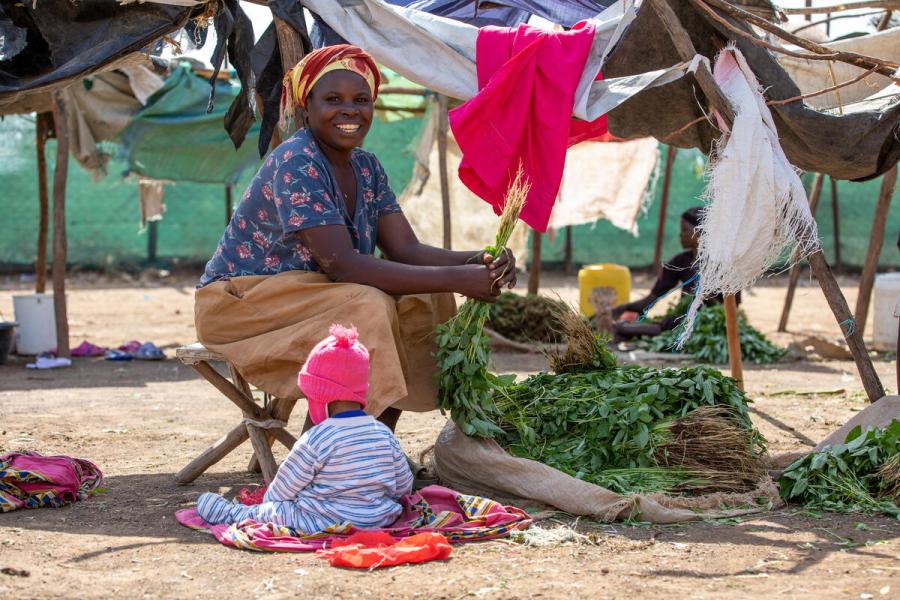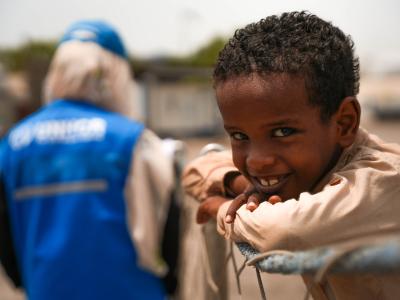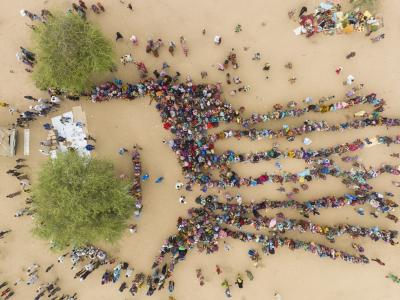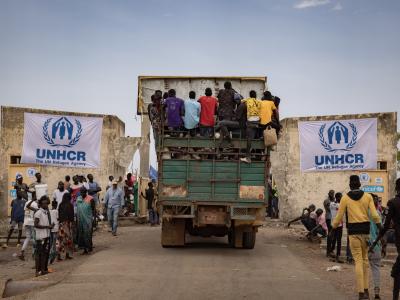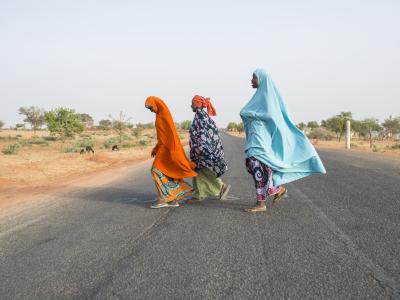Without political solutions to international crises, situations of displacement tend to last for years or even decades, meaning that humanitarian responses are not enough, and a medium-term development approach is required. UNHCR aims to generate momentum for such an approach by bringing the world community together at the quadrennial Global Refugee Forum. 168 governments attended the December 2023 Forum, which produced more than 1,700 pledges, including 47 multi-stakeholder pledges. The lives and welfare of refugees and asylum-seekers can be hugely improved if they are included in the public services and systems of the country hosting them, and if they have the chance to participate in the local community and contribute to the economy.
Several refugee-hosting countries are already implementing such policies – from Europe in response to the Ukraine crisis, to Latin America in response to the Venezuela crisis, or Türkiye’s hosting of Syrian refugees. Inclusion can dramatically reduce the costs of assistance. World Bank research shows that in Chad, the cost of assisting 1.2 million Sudanese refugees would be $543 million a year, although this amount drops to $437 million since many existing Sudanese refugees already earn incomes. If all Sudanese refugees were fully integrated and given the right to work and move freely, the cost would shrink even further, to $89 million.
To continue finding comprehensive solutions for forcibly displaced and stateless people, UNHCR engaged with a range of development actors. In more than 130 countries, UNHCR contributed to the UN Sustainable Development Cooperation Framework to pursue the inclusion of forcibly displaced and stateless people in development programming.
As seen in the other Impact Area chapters, efforts continued to include refugees and asylum-seekers in society. For example, monitoring by UNHCR operations in 81 countries showed that 5.8 million refugees and asylum-seekers benefited from government social protection programmes in 2023.
Similarly, refugee inclusion in national education and health services signalled some progress towards this end. Enrolling refugee children in national education systems is “cheaper, more sustainable, and more conducive to reducing tensions between refugees and host communities” than building parallel schooling systems, according to the World Bank, which has observed a trend toward inclusive education.
In June 2023, governments adopted the Rabat Declaration, a groundbreaking agreement to promote the inclusion of refugees and migrants in national health systems, as part of the global movement for universal health coverage.
Moreover, the 2023 edition of the World Bank’s World Development Report, “Migrants, refugees and societies”, argued that refugees can bring benefits when their skills have a strong match with the labour needs of the host economy. Where the skills match is weaker, supporting their access to work, their mobility and their inclusion in national health and education systems is the best way to protect them, and increases their ability to contribute economically. UNHCR’s 2023 “Global survey on livelihoods and economic inclusion” shows that while 67% of refugees had a legal right to formal employment, including wage earning jobs and self-employment, only 45% of refugees had unrestricted access in practice, but that proportion has grown significantly in recent years.
